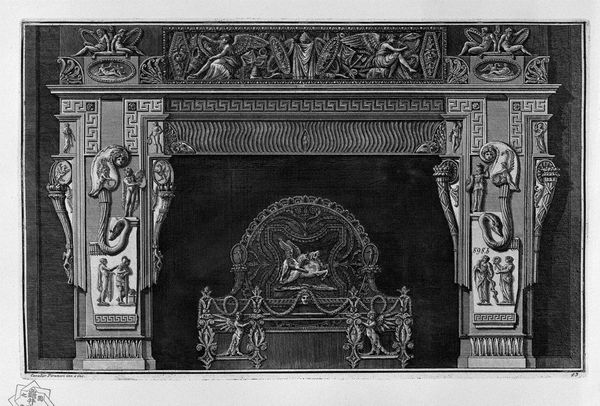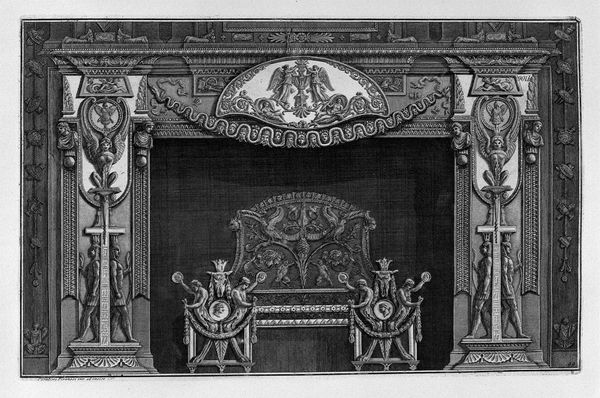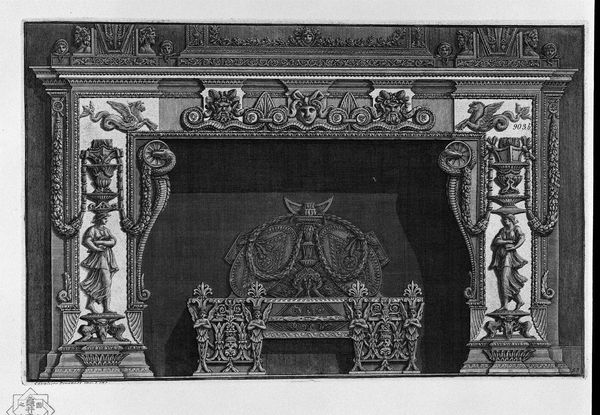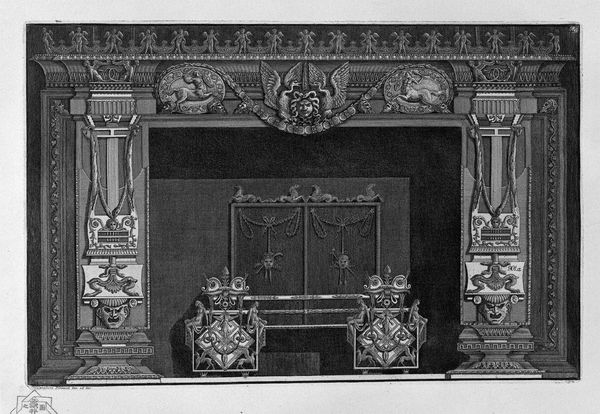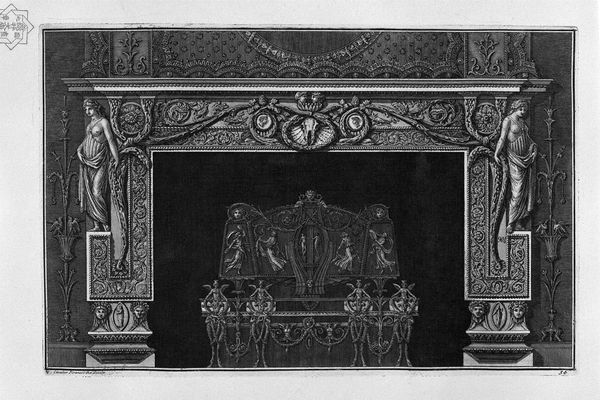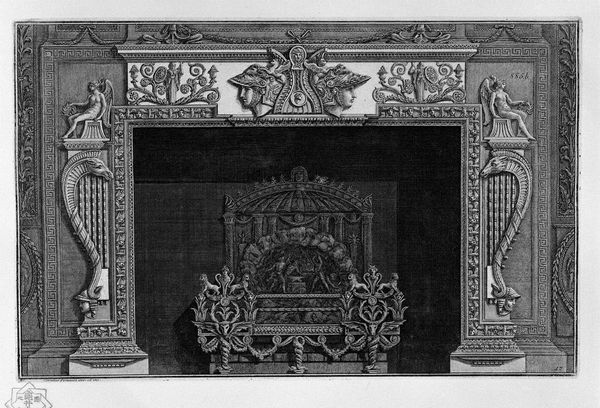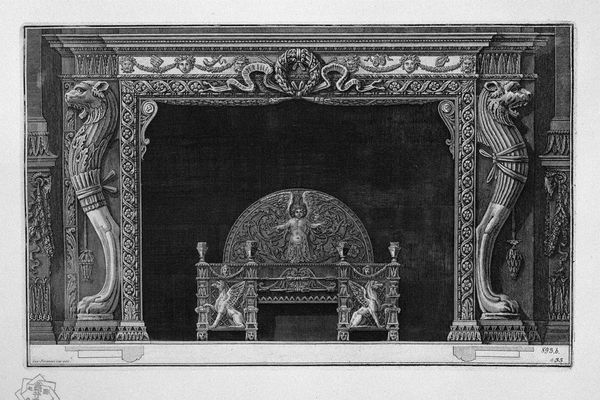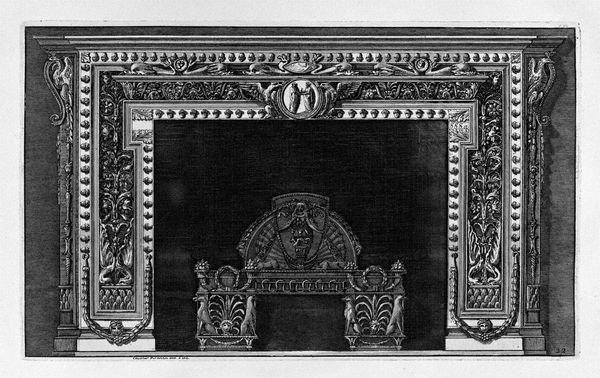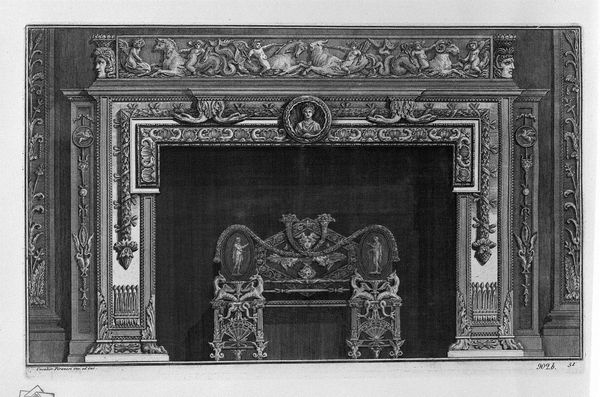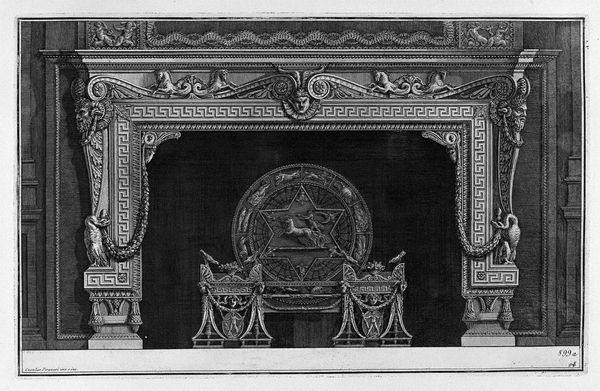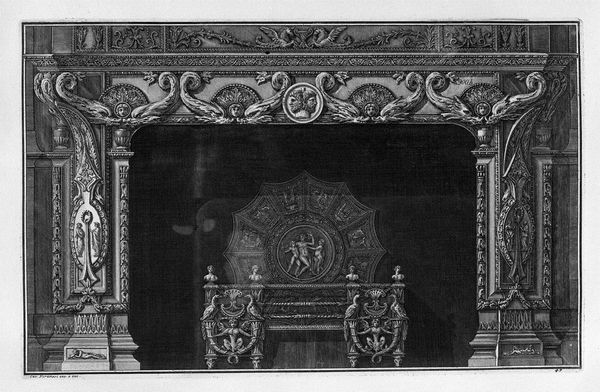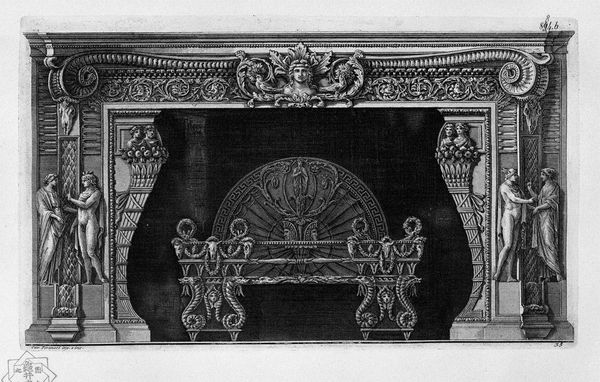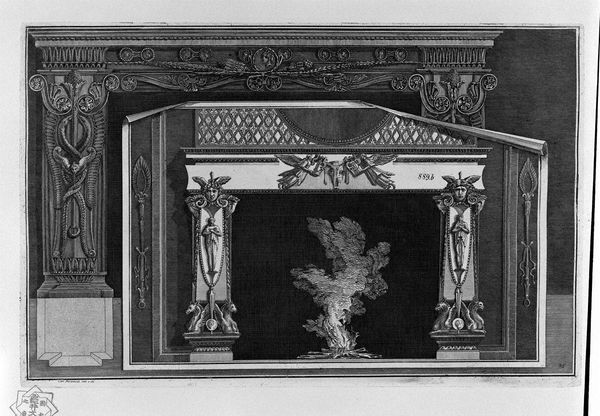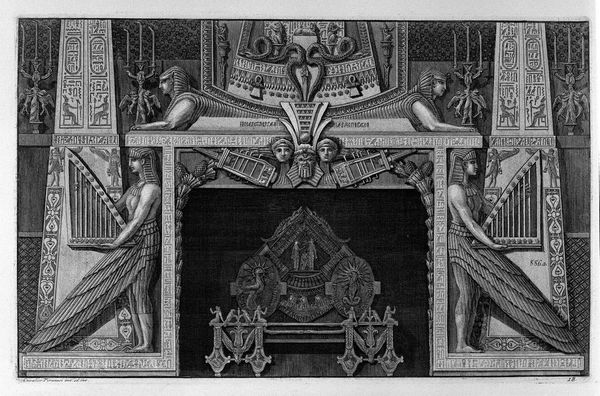
Fireplace: stage three masks in the frieze between two medallions with the Graces, in the interior, full wing
0:00
0:00
drawing, carving, etching, engraving, architecture
#
drawing
#
neoclacissism
#
carving
#
etching
#
sculpture
#
11_renaissance
#
carved into stone
#
arch
#
carved
#
engraving
#
architecture
#
statue
Copyright: Public domain
Giovanni Battista Piranesi rendered this fireplace design as an etching sometime before 1778. Piranesi lived in Rome during a period when the city was a focal point for European artistic and intellectual life. Piranesi’s work embodies the 18th-century fascination with classical antiquity, but it also showcases the period’s evolving aesthetic sensibilities. Notice the symmetry and the references to classical mythology with the Three Graces. But consider how the intense ornamentation and dramatic flair depart from the restraint typically associated with classical art. These elements suggest a shift towards the emerging Rococo style, favored by the elite. As an artist, Piranesi occupied an interesting position. He was an outsider, an Italian working for international patrons. His identity shaped his art as he sought to capture the grandeur of Rome while infusing it with his personal vision. His highly detailed prints catered to the desires of wealthy tourists who wished to bring home souvenirs of their travels. The fireplace as a central feature of domestic life speaks to issues of class and gender, and this image offers a glimpse into the private sphere of the wealthy. The design is not just a functional object, it's also a symbol of status and taste.
Comments
No comments
Be the first to comment and join the conversation on the ultimate creative platform.
